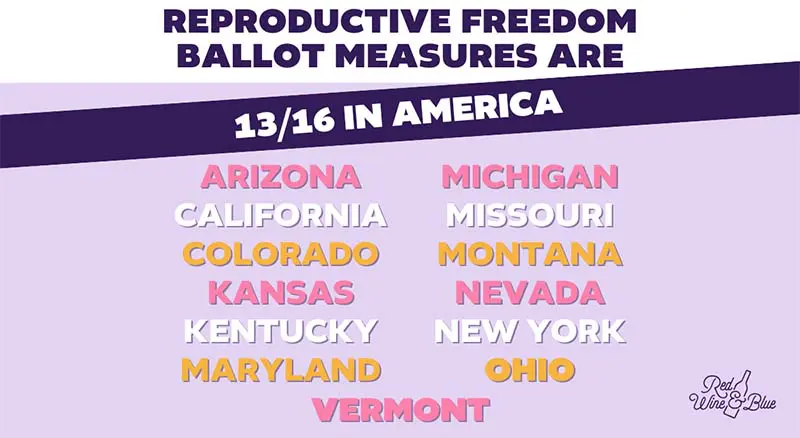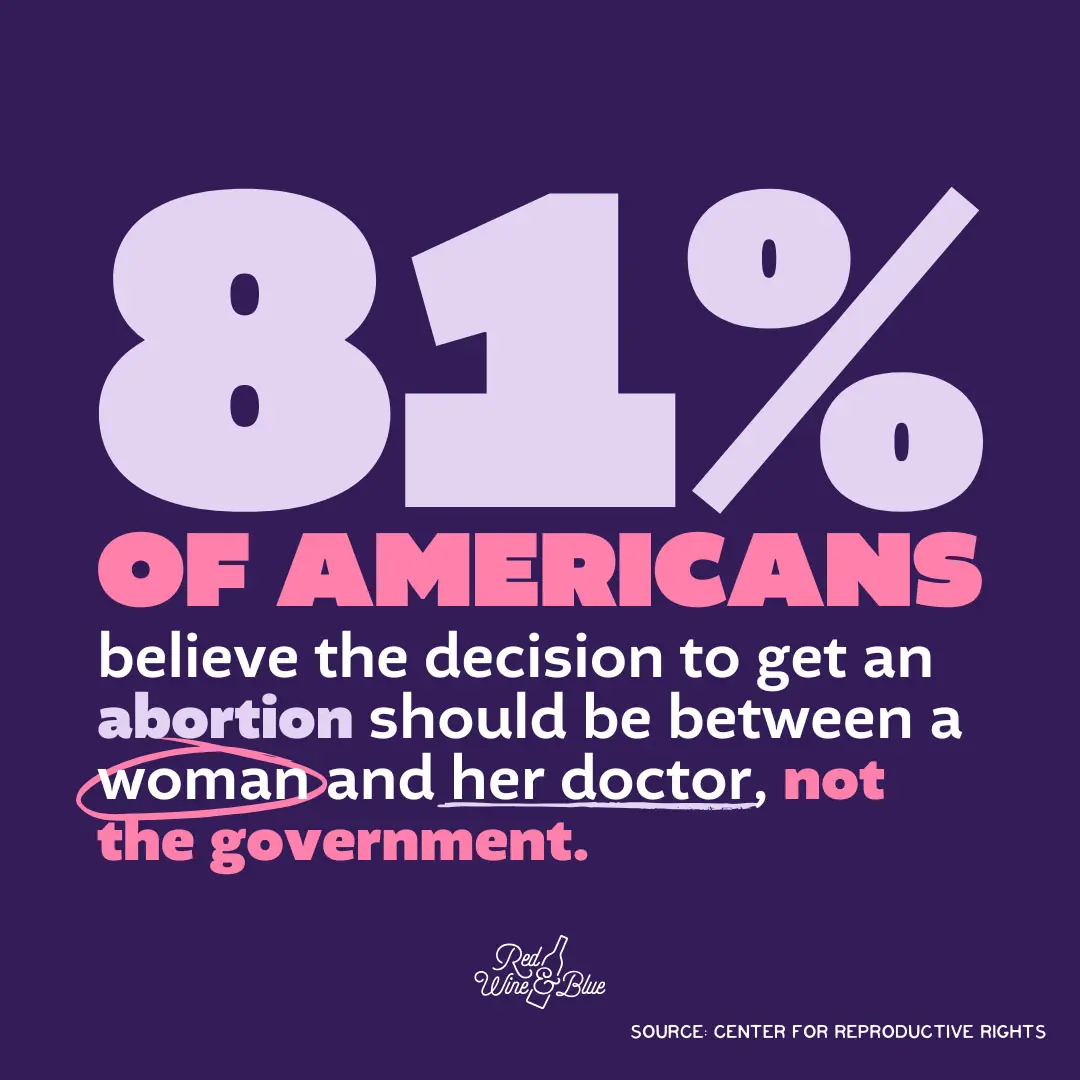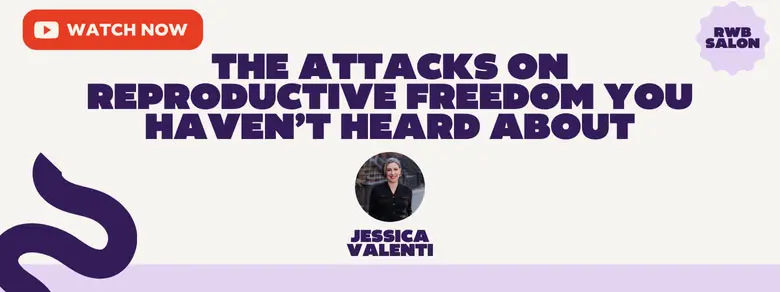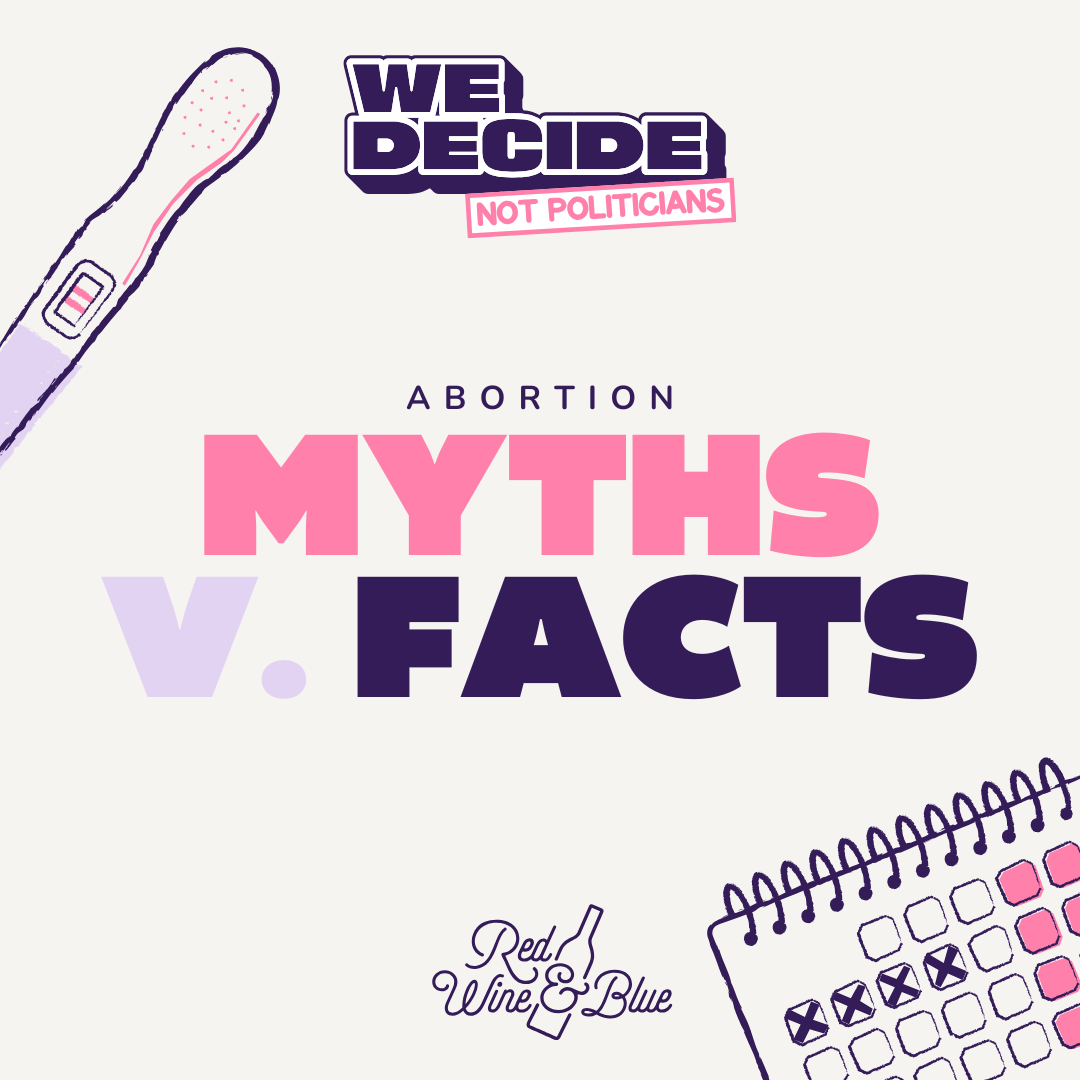
OUR REPRODUCTIVE FREEDOM IS UNDER ATTACK
We all deserve the right to decide if, when, and how we start or grow our families. Whether that means using birth control, in vitro fertilization (IVF), or having an abortion, we should be able to make our own healthcare decisions without politicians involved. It’s our business, not the government’s. But our freedom to make these choices is under attack.
Some politicians are coming after our reproductive rights, both in our states and in D.C. They want to control what we do with our bodies and define what our families look like. But we’re fighting for our reproductive rights at every level and we want you in the fight with us!
Sally Field bravely shared her abortion story with us for the first time publicly in 2024. She played Gidget, the quintessential “all-American girl” on TV, and her real-life story represents so many American women today.
Want to do more to protect our reproductive freedom?
Stay In the Know
Get the latest news and ways to take action by signing up for our emails about reproductive rights issues and events.
Join TroubleNation
Join the fight for our rights out in your community. Find a TroubleNation group near you to have the most impact.
Need more information first?
We’ve got you! Keep reading to learn how politicians are taking away our right to make our own decisions about our bodies and our families.
Learn About Birth Control
Learn About IVF
Learn About Abortion Care
ACCESS TO BIRTH CONTROL IS A REPRODUCTIVE RIGHT
The majority of Americans use birth control or support other people’s right to use it.
%
of American women regularly use some form of contraception.
%
of sexually active American women have used contraception at some point.
%
of Americans support the use of birth control.
%
of Americans support Congress passing a law to protect our right to birth control.
So it’s pretty out of touch that 195 Republicans voted against the Right to Contraception Act in the U.S. House of Representatives in 2022, and 39 Senators voted against it in 2024. This has happened in the states, too.
In Arizona, Florida, Iowa, Mississippi, North Carolina, and Wisconsin, Republicans have blocked Right to Contraception bills from even being heard in committees. In Virginia and Nevada, when bills were passed, Republican Governors Youngkin and Lombardo vetoed them. 28 states limit access to birth control in some way.
It’s not just state laws we need to worry about.
In his first term, Donald Trump’s policies made it harder for people to get birth control or have it covered by their insurance. Now, Project 2025 recommends those policies and more. Trump’s Department of Health and Human Services has already cut funding for birth control and other services from Planned Parenthood and other providers.
And after the Dobbs decision took away our right to abortion, Supreme Court Justice Clarence Thomas wrote that the right to contraception should be reconsidered next.

Reproductive Rights Win on the Ballot
Reproductive rights measures are almost always successful at the ballot box. Since the Dobbs decision, 13 states have passed ballot measures to protect reproductive freedom.
ACCESS TO IVF IS A REPRODUCTIVE RIGHT
In vitro fertilization (IVF) helps people who have struggled with infertility get pregnant through medical procedures. It can be physically and emotionally challenging, and expensive. Anyone going through IVF really wants a child and no politician should deny them the chance. The vast majority of Americans agree, and many are intimately familiar with fertility struggles.
Women under 49 years old have received infertility services.
%
of Americans support keeping IVF legal.
%
of evangelical Christians support keeping IVF legal.
So why has IVF entered the reproductive rights conversation? It’s because of a belief in the anti-abortion movement called “fetal personhood” that says life begins at conception and embryos should have the same rights as living people.
How Extremists Use Fetal Personhood Laws
Fetal personhood laws are used by anti-abortion extremists and Christian nationalists to ban abortion. They give embryos legal rights while taking these rights away from pregnant people. But they also give rights to the embryos created during fertility treatments, which could drastically change standard IVF procedures.
That’s exactly what happened in Alabama in 2024. The Alabama Supreme Court ruled that embryos were children and IVF clinics immediately stopped providing services to avoid breaking the law. The state legislature had to pass a new law to protect IVF before services resumed.
125 Republicans in the U.S. House of Representatives, including Speaker Mike Johnson, have sponsored a Life at Conception Act based on “fetal personhood” that could severely restrict or outlaw IVF nationwide. U.S. Senate Republicans blocked a bill sponsored by Sen. Tammy Duckworth to federally protect IVF. Later in 2024, U.S. Senators voted twice on the Right to IVF Act; both times, Republicans made sure it didn’t pass.
17 states have “fetal personhood” laws and 24 states have “personhood” language in their abortion laws. These leave pregnant people and reproductive healthcare providers in those states vulnerable to civil and/or criminal charges.
ABORTION RIGHTS IN THE UNITED STATES
Americans are overwhelmingly supportive of our right to abortion. 81% of us agree that the decision to get an abortion should be between us and our doctors, not the government. But in June 2022, the U.S. Supreme Court issued the Dobbs v. Jackson Women’s Health Organization ruling, which took away our right to abortion established by Roe v. Wade.
Extremist-led states immediately started passing abortion bans, while other states expanded access and protections for abortion rights. This has created a patchwork of widely varying laws from state to state. 21 states have banned abortion. The laws have changed so much and so quickly, most of us don’t even know the legal status of abortion in our state. But we do know this — support for abortion rights has increased since Dobbs.

The increase in abortion bans is harming reproductive healthcare in the U.S. 66 healthcare clinics in 15 states stopped providing abortion care immediately following the Dobbs decision. Maternity healthcare deserts (where women can’t access any sort of pregnancy care without traveling long distances) have grown. There are life-threatening delays in care for women in pregnancy-related emergencies. Maternal mortality rates and inequities in maternal healthcare are predicted to increase. And it’s getting harder for obstetrician-gynecologists (ob-gyns) to do their jobs and for medical students to get trained. All women are suffering and abortion rates haven’t even declined!
Right now, we’re confused and afraid — for ourselves, for our daughters, and for our friends. Given the national support for abortion and the chaos caused by the fall of Roe, abortion rights should not be left to the states.
The Threat of A National Abortion Ban
Federal laws override state laws, so the only way to really protect our abortion rights nationwide is to restore them at the federal level. Until we have protection at the federal level, we face the threat of more state abortion bans and maybe even a national abortion ban.
A national abortion ban could be introduced in Congress. Senator Lindsey Graham introduced one every session from 2013 to 2022. But there are other ways abortion could be essentially banned across the country, including through Project 2025 and restricting medication abortion.
Project 2025's Attack on Abortion
Project 2025, the far-right extremist playbook created for Donald Trump’s second term, is very clear: it wants to ban abortion nationwide. Project 2025 doesn’t even want government websites and documents to use the word abortion — a policy Trump has already implemented.
Project 2025 also wants to stop hospitals from providing life-saving abortion care to patients who are having a medical emergency. It also wants to defund Planned Parenthood, a key provider for affordable, high-quality reproductive healthcare for women. Meanwhile, they want to pour taxpayer money into deceptive “crisis pregnancy centers” that are really just anti-abortion disinformation centers in disguise.
Donald Trump has already implemented some of Project 2025’s recommendations and reversed major abortion protections put in place by Joe Biden, like ending support for military service members who need to travel to less restrictive states to get reproductive healthcare. Trump also pardoned anti-abortion extremists who were convicted of violence, harassment, and intimidation at healthcare clinics that provide abortion care.
Even before Project 2025 came on the scene, medication abortion has been under attack because it accounts for 63% of abortions in the U.S. and is the most widely-used form of abortion care. Now Project 2025 wants to reverse the FDA approval of mifepristone and misoprostol, the drugs used for medication abortion, and make it illegal to mail or transport them. This would completely end their use.
Medication abortion has been safely used for over two decades and has been proven to be safer than Tylenol and Viagra. The American College of Obstetricians and Gynecologists and the American Medical Association have also shown that mifepristone can be life-saving for women who are miscarrying. Abortion is healthcare.
There are a lot of lies out there meant to confuse us about abortion.
Learn the facts!
READY TO DO SOMETHING TO PROTECT OUR REPRODUCTIVE FREEDOM?
The best way to fight these attacks on our rights is to understand what is going on, inform our friends and family, and take action in our local communities.
Sign up for our emails about reproductive rights issues.
Sign up for Easy A for actions you can take in five minutes or less.
Spread the word. Click on a post below to share this information with your friends and family on social media.






